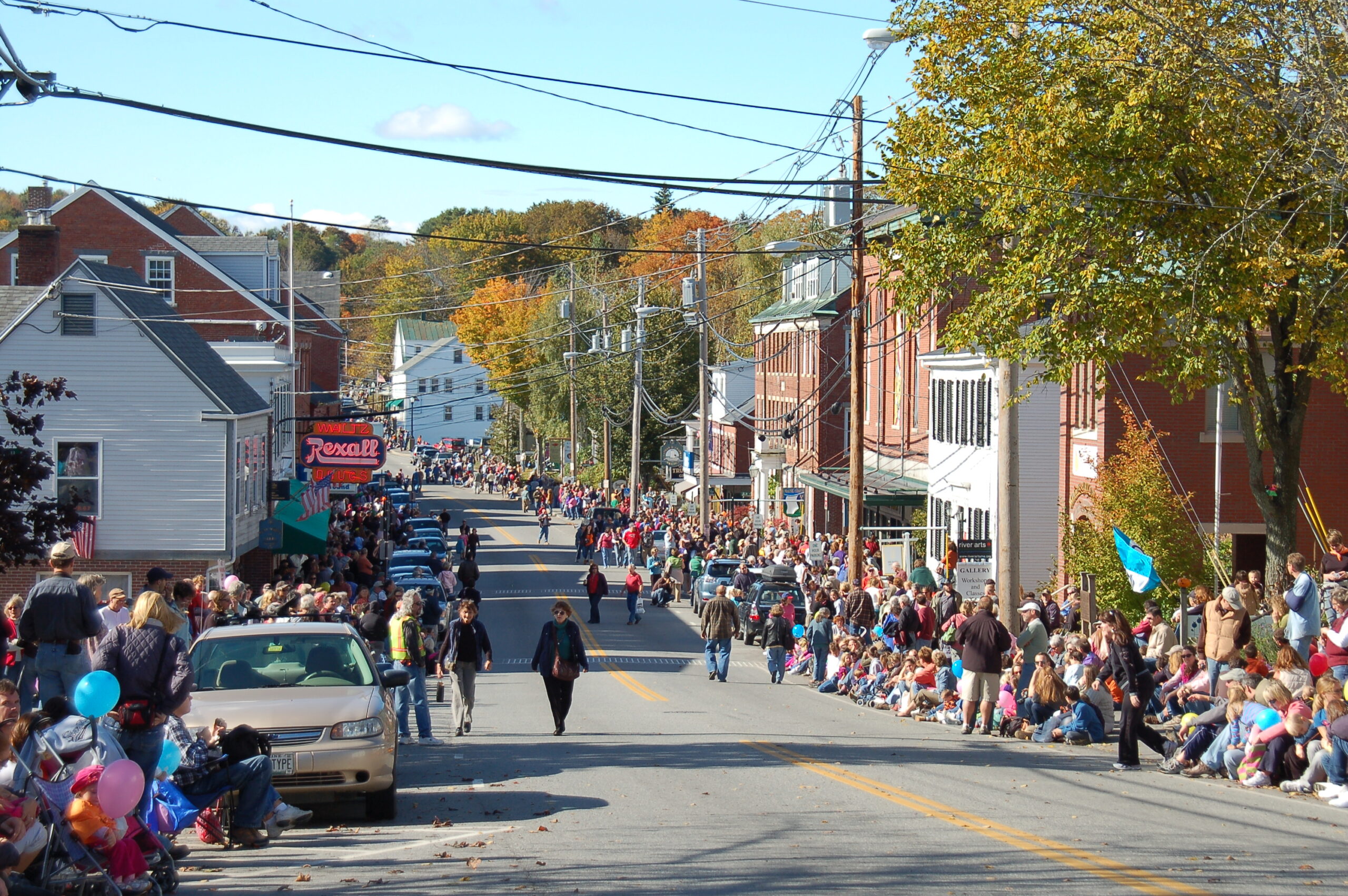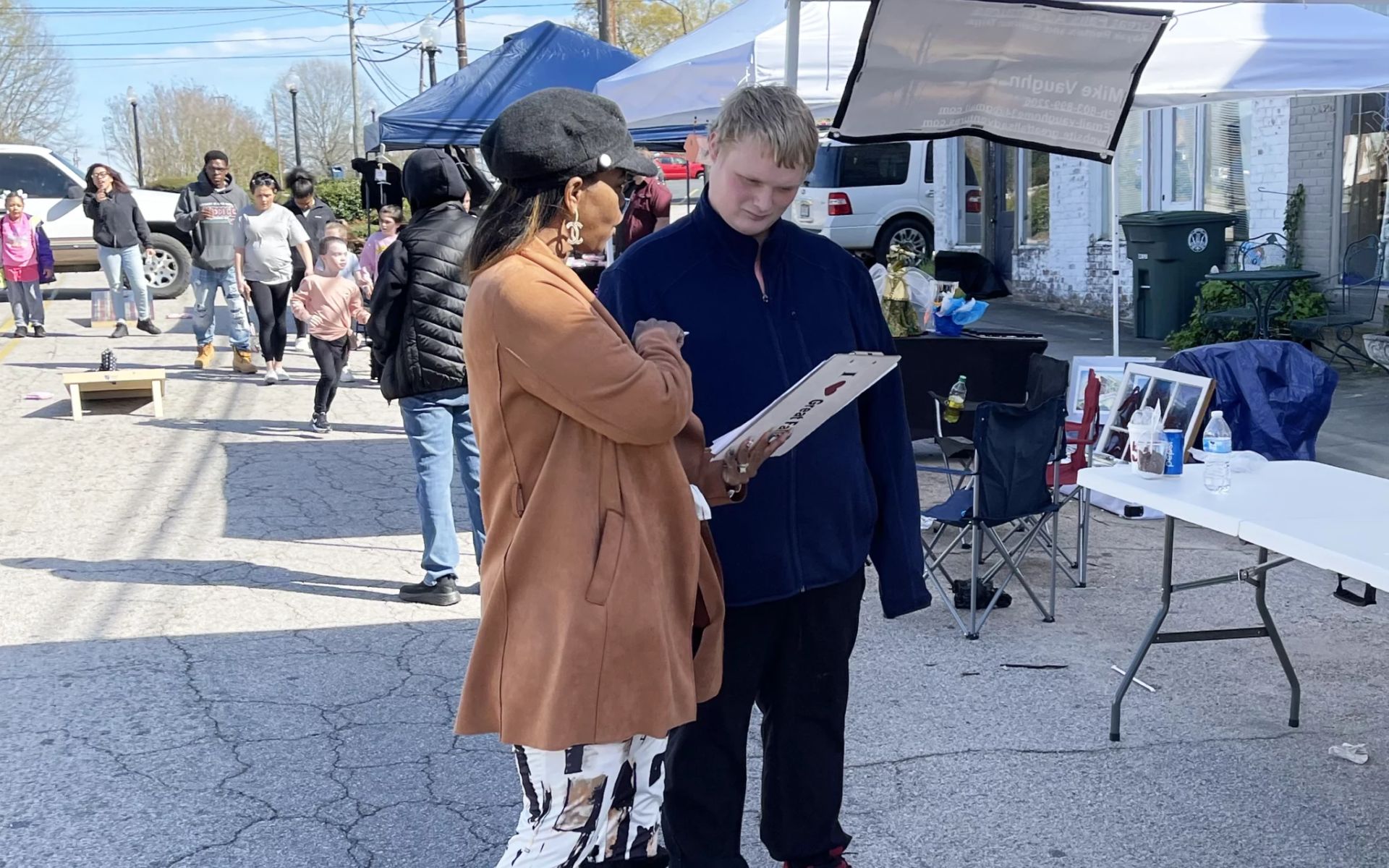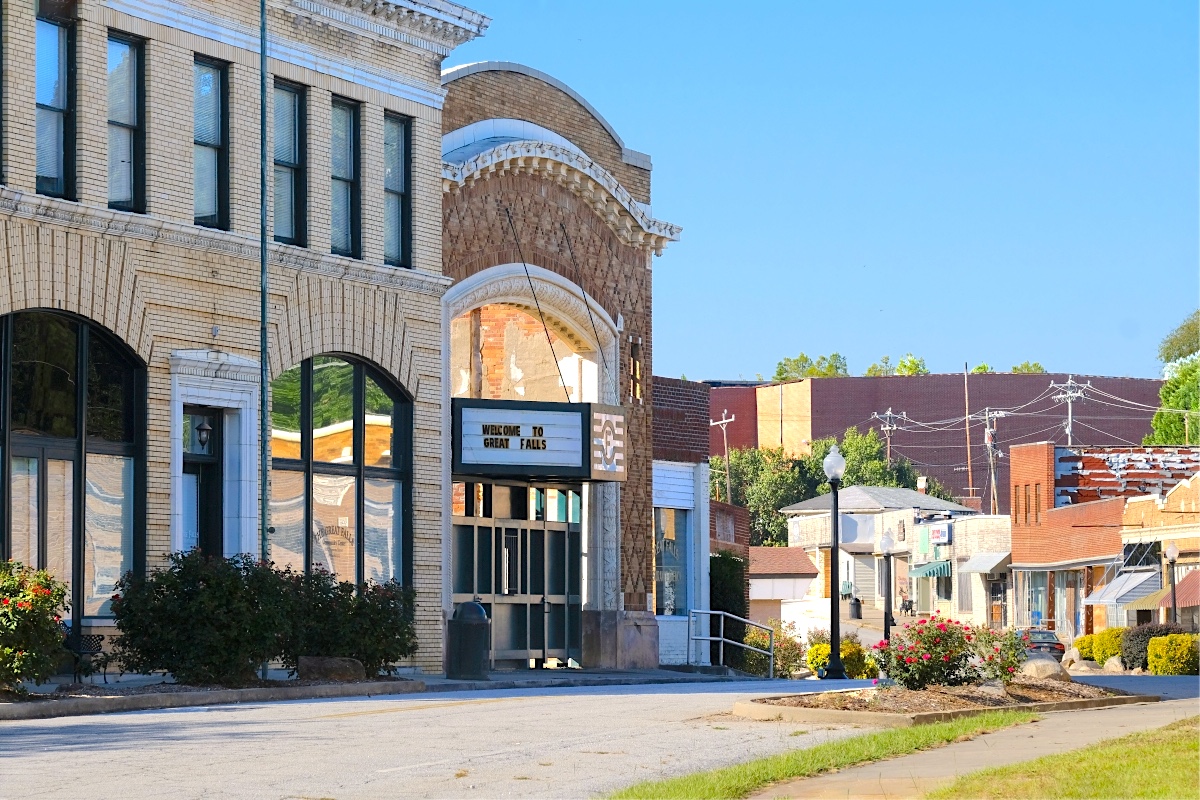Rebuilding Confidence, Restoring Pride in Armada
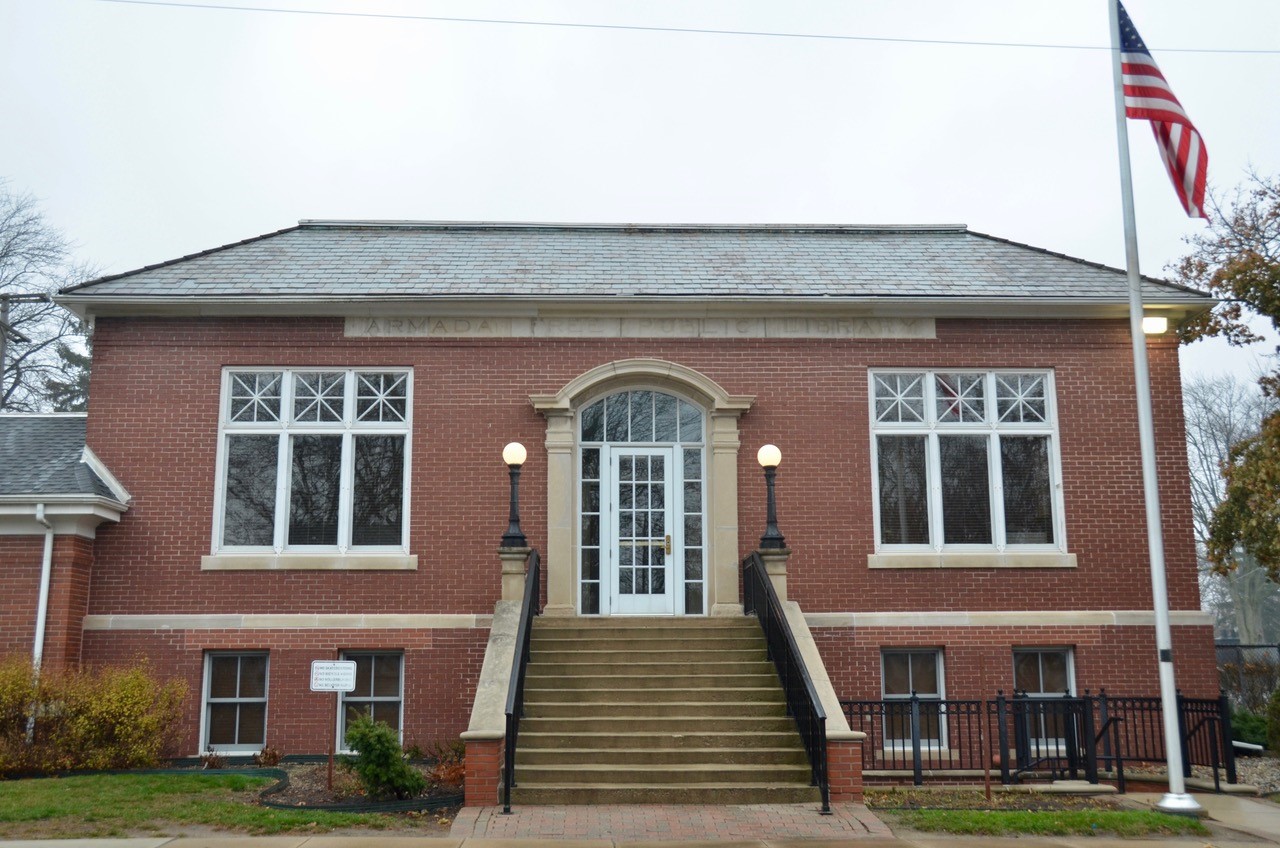
Armada, Michigan, is the kind of place where, as you cross the street at a downtown four-way intersection, the only oncoming car is likely filled with friends who exuberantly recognize you. A horn honks, and arms wave out the windows, despite a cold November rain. It is a chorus — “Hi! Hey! Out of the road! Hi! What are you up to? Hi!”
That was the case late in November, as Sam Boelke stepped onto the crosswalk, waving back at the car.
“I know those people,” she laughed.
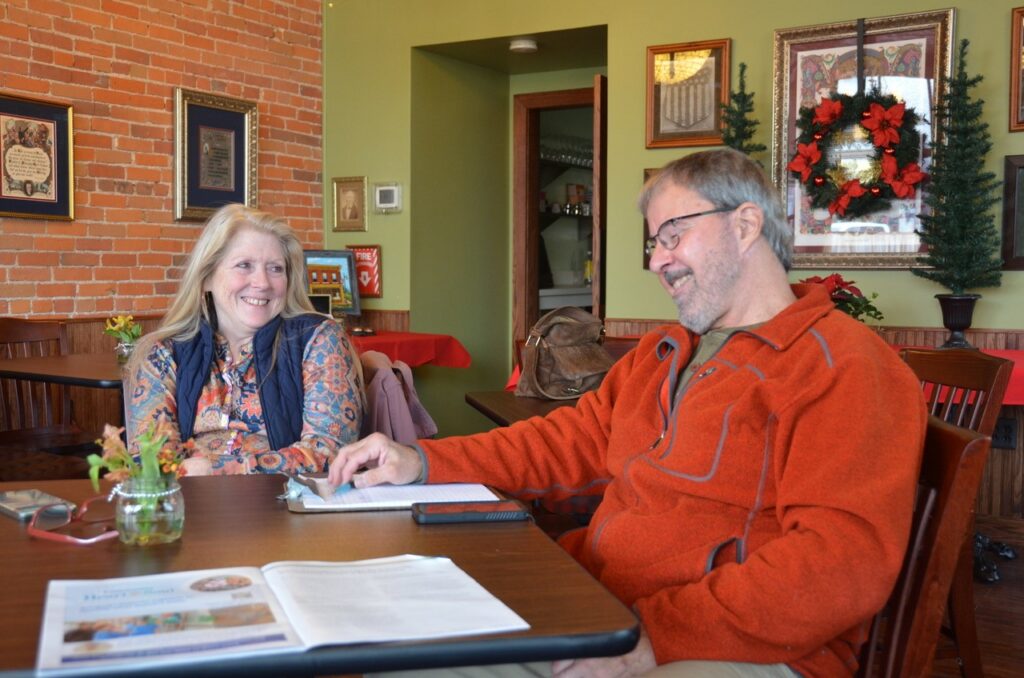
Sam and her husband, Ross Boelke, have lived in Armada since 1993, and love the community. They have been active in local government, Sam as Deputy Municipal Clerk, and Ross as a Village Trustee and Water Commissioner. They head up the Armada Historical Society, and own one of the circa 1880s downtown commercial brick buildings that they call “We the People” Hall, repurposing it as an on-demand restaurant and for local meetings and social gatherings.
But faced with data that indicate a shrinking, as well as aging, population, they worry about Armada’s future.
“Over the next 25 years, the Village will slowly decline, unless something changes,” said Ross.
With the help of a Community Heart & Soul Seed Grant, a group of residents is now embarking on Phase One of the Community Heart & Soul process to see how that might change, for the better.
Armada
At Mile 32 north of Detroit, the metropolis grid of roads, so meticulously organized in the early 1800s, gives way to farm country. This is the municipal line of Armada Township, pronounced Ar-may-da, 36 square miles in size.
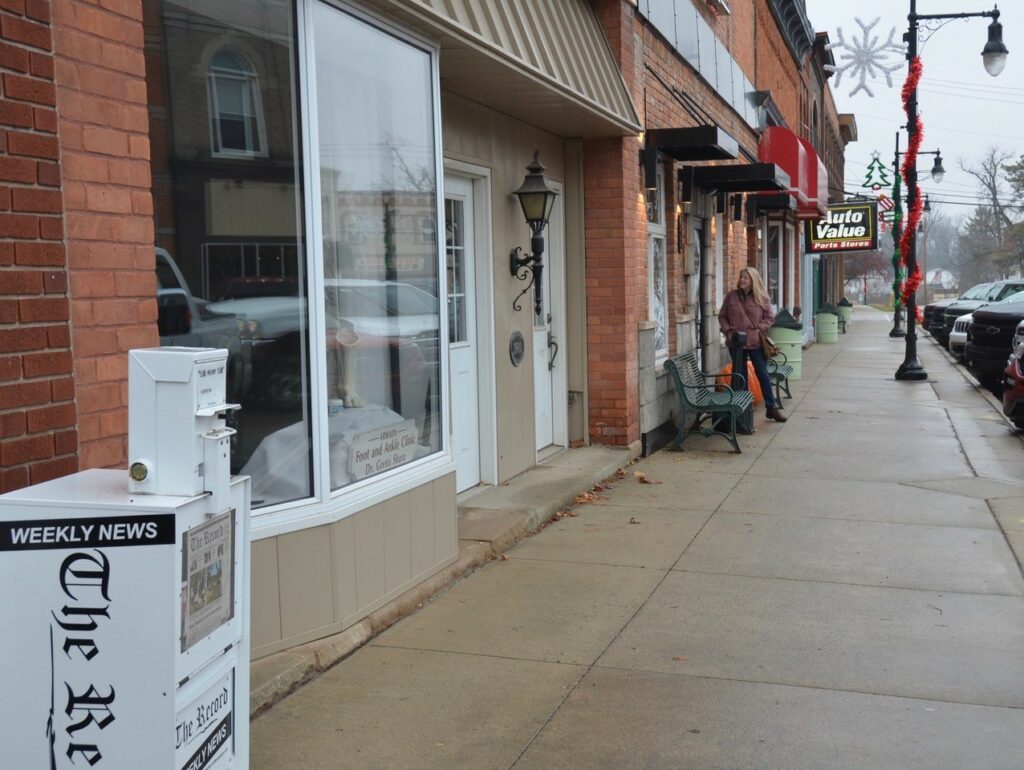
At the edge of Armada Township, population 3,700, lies Armada Village, less than one square mile in size. With approximately 1,700 residents, it is a small town within a township, with a vibrant commercial and cultural history. Its streets are lined with handsome Queen Annes, Colonials, Victorians, modest farmhouses and bungalows; at the center of the Village, a block of brick buildings on Main Street bear the flourish of late 19th Century American architecture, reflections of earlier energetic and optimistic times.
Down a side street, the Armada Free Public Library, funded by the Carnegie Foundation and built in 1915, was expanded in the 1980s, renovated in 1999, and today remains a thriving community center.
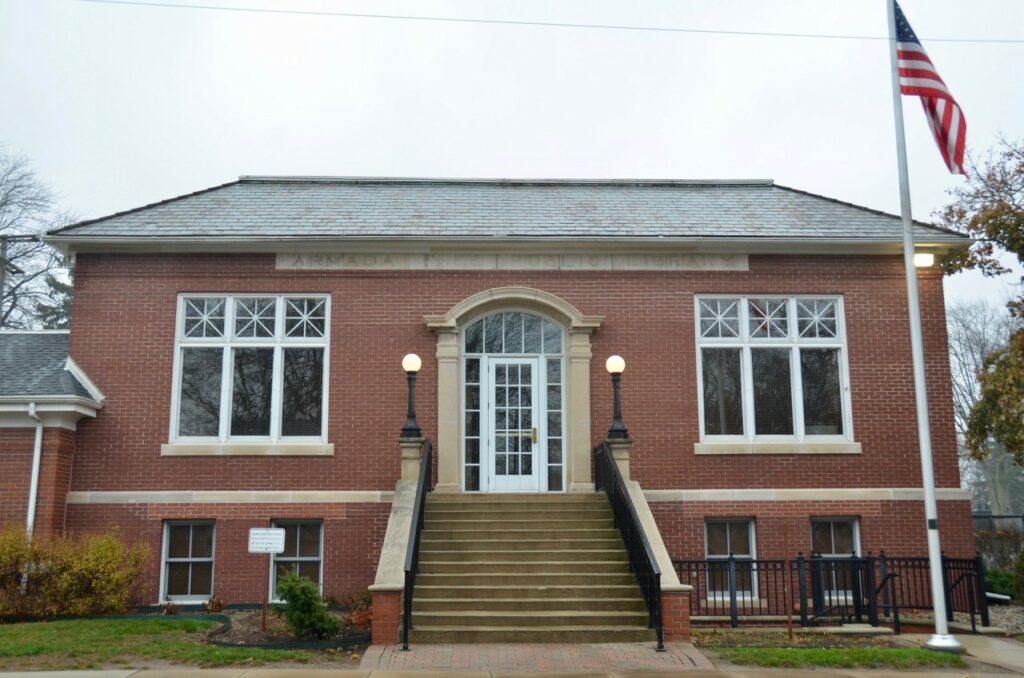
Six churches: Lutheran, Catholic, Methodist, Congregational, Protestant and Baptist are scattered through the Village, and the well-respected Armada Area School District draws more than 1,700 K-12 students from the Township and several communities beyond.
Over the last 150 years since Armada was incorporated, literary societies have thrived, including the Armada Branch of the Chautauqua Literary and Scientific Circle, which hosted reading courses for the community’s edification in the 1880s.
At the community’s core, public safety is secured with police, fire and EMS ready to kick into action, as they did when a tornado ripped through Armada in August 2021, ripping roofs off homes, uprooting old trees and destroying buildings.
That summer, first responders, neighbors and strangers turned out in force to take care of each other as temperatures climbed into the high 90s in the shade, humidity tormented the region, and electrical power was lost for days.
And then there is the Armada Fair, the oldest annual agricultural fair in Michigan, dating back to 1872. Only natural for a township where apple orchards and family farms remain foundational to its rural heritage.
Friendly, generous, broadminded, industrious and organized, Armada is quintessential Midwest America. Its people know how to self-govern in a participatory democracy. Village trustees manage the affairs of the Village, a council oversees the Township, and a school board maintains the business of public education.
Still, that nagging unease over Armada’s future creeps into conversations, and now, residents want to better define the cause, and pursue remedies.
Finding the path forward
A Southeast Michigan Council of Government (SEMCOG) study projects the population of Armada Village will decline through 2045, which concerns Ross Boelke. And as the population shrinks and ages, average incomes will decrease, resulting in fewer taxpayers able to shoulder costs associated with keeping a municipality, with its sewer, water, public works and public safety, functioning.
Ross was successful in not only gaining support from the Village Trustees and the Township Council to pursue a Community Heart & Soul Seed Grant, but the two governmental entities subsequently issued proclamations supporting the effort. It was a step forward, and since receiving the grant, a growing number of residents have been gathering regularly in the We the People Hall on Main Street to plan community involvement.
“They have an awesome cross reference of all age groups on the core team,” said Matt Jenkins, who is Executive Director of the nonprofit Ortonville Downtown Development Authority, 33 miles west from Armada.
Matt is the Armada’s Heart & Soul Coach, and he visited with the group in mid-December.
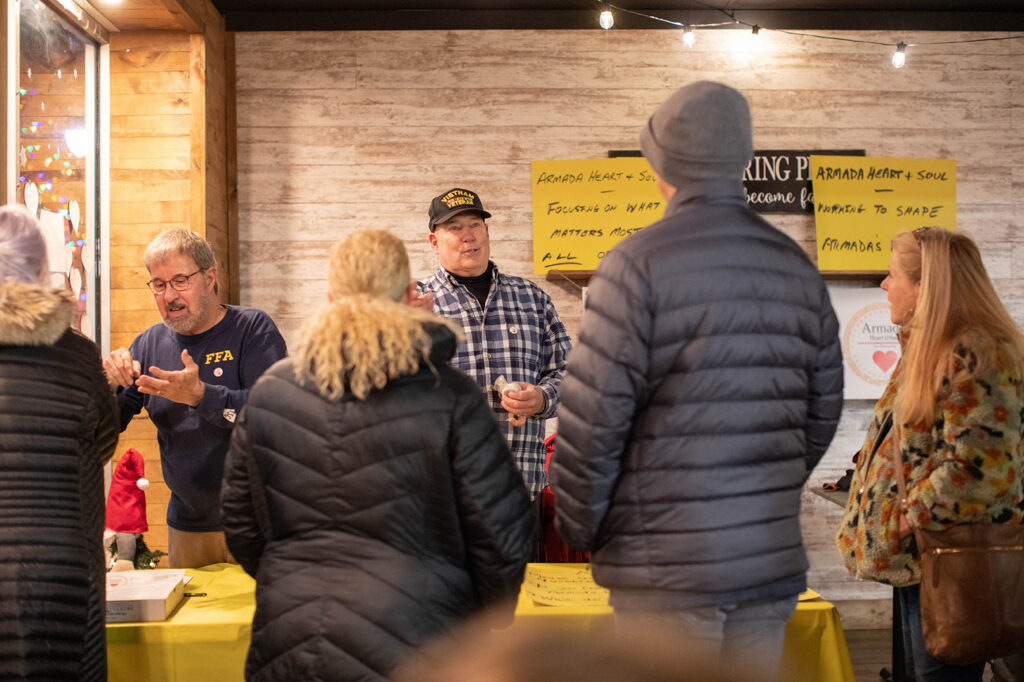
“It is impressive that this is solely a group of community members wanting to create a future for the community,” he said. “When you talk about grassroots efforts, it is happening in Armada.”
Joining the group was a man in his 30s who recently moved to Armada from the congested Detroit suburbs with his young family. They were seeking a better quality of life, said Matt.
A National Honor Society high school senior had also joined the group, as did a woman in her 70s who has lived in Armada all her life.
“Her priority is helping people,” said Jenkins. “It is exciting to see what inspires them about what could be.”
They also talk about the past, when it seemed that people were friendlier, the downtown more vibrant, and community events more common.
“We obviously have a lot of heart for each other, because look at what happened during the tornado,” said Sam. “Why can’t we do more of that on a day-to-day basis?”
While destructive, the tornado unexpectedly revealed the inherent framework of a strong community, if but briefly.
“All of a sudden here comes a tornado and blasts part of the Township and the Village,” said Ross. “Then everyone is outside helping each other. They’re not asking, ‘whom did you vote for,’ or ‘whom do you like,’ or ‘what’s your politics.’ They’re just helping each other.”
For him, the Heart & Soul process will help will help open up communication and collaboration between the schools, the Village and the Township.
To Matt, opportunities lie ahead for Armada.
“The main street in Armada is awesome, as far as the buildings that are there and how the town is laid out,” he said. “Does it have what a thriving downtown should have? Maybe not and there may have been a time when things were busier there. But I had to drive around the block three times to get a parking spot. That tells me that the community visits the downtown.”
Broadband could be a game-changer, they all agree. So, too, could be the trend of younger generations seeking homes in a quieter America, where walkability is as important as highways, and civility as important as profitability.
Community Heart & Soul, Ross hopes, will help residents build confidence and restore pride in their community, as well as increase their openness for new ideas and fresh perspectives. Like a rising tide.
Want to bring Community Heart & Soul to your town? Apply for a $10,000 Community Heart & Soul Seed Grant to get started. Learn more at: www.communityheartandsoul.org/seed-grants
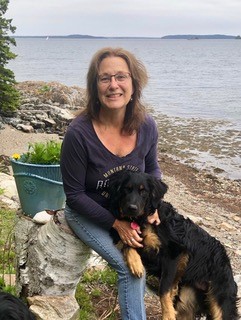
Lynda Clancy is editorial director of the Penobscot Bay Pilot, an online community hub that covers a large region of coastal Maine. The beauty and complexity of small towns have inspired her as a writer and photographer since the 1980s. An award-winning journalist, she serves on the Maine Press Association’s Board of Directors, the Maine Legislature’s Right To Know Advisory Committee, as well as local community nonprofits and municipal committees.


